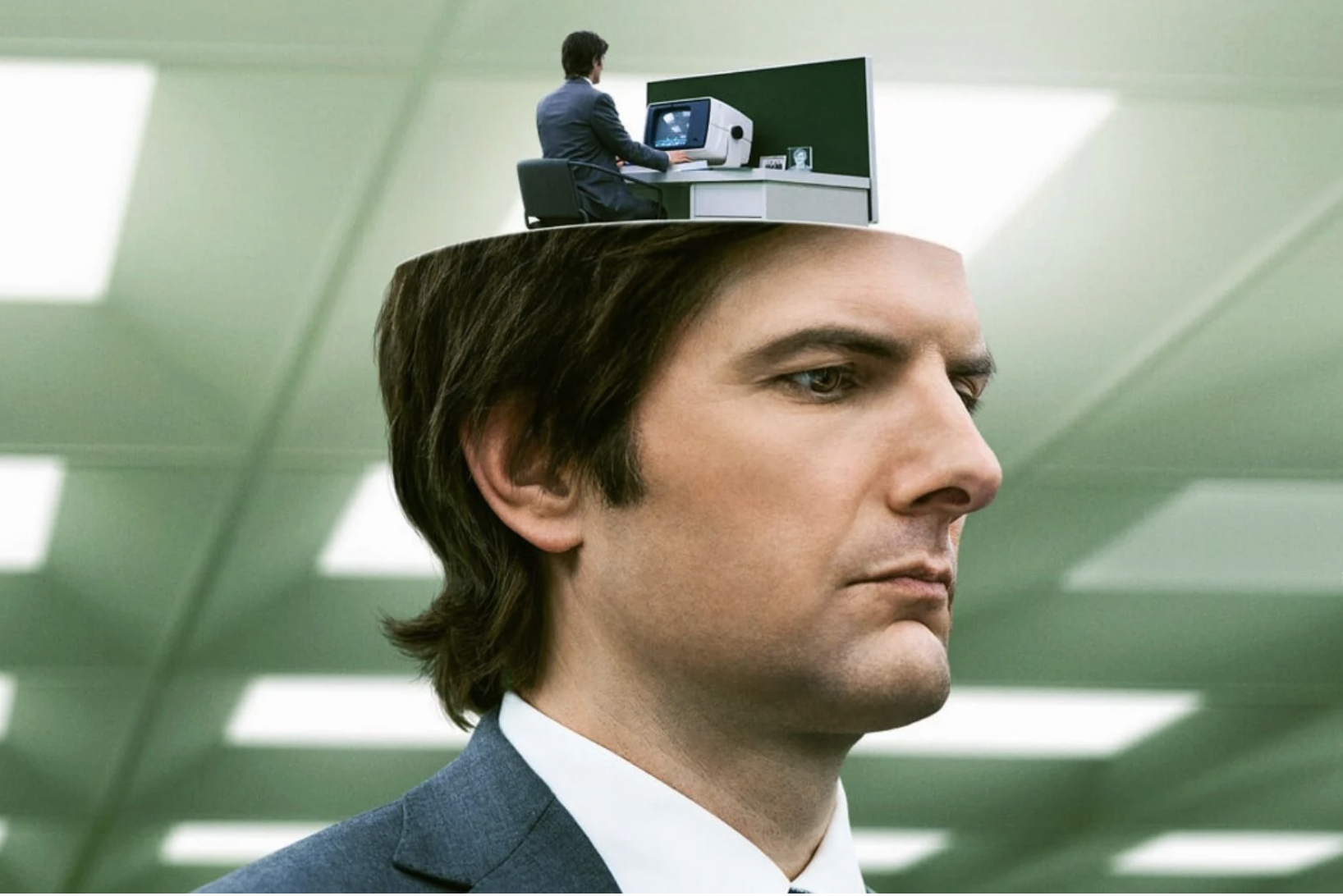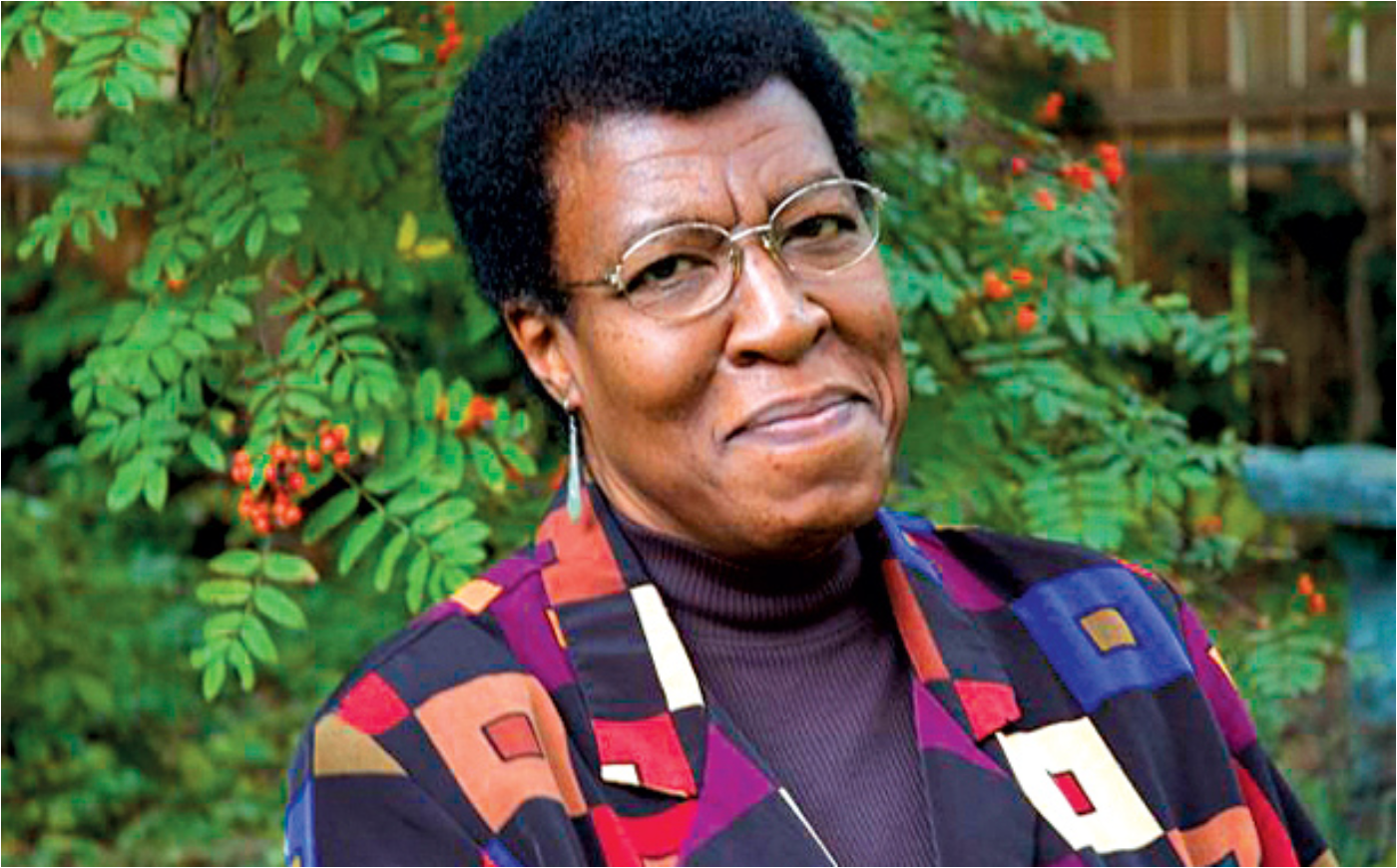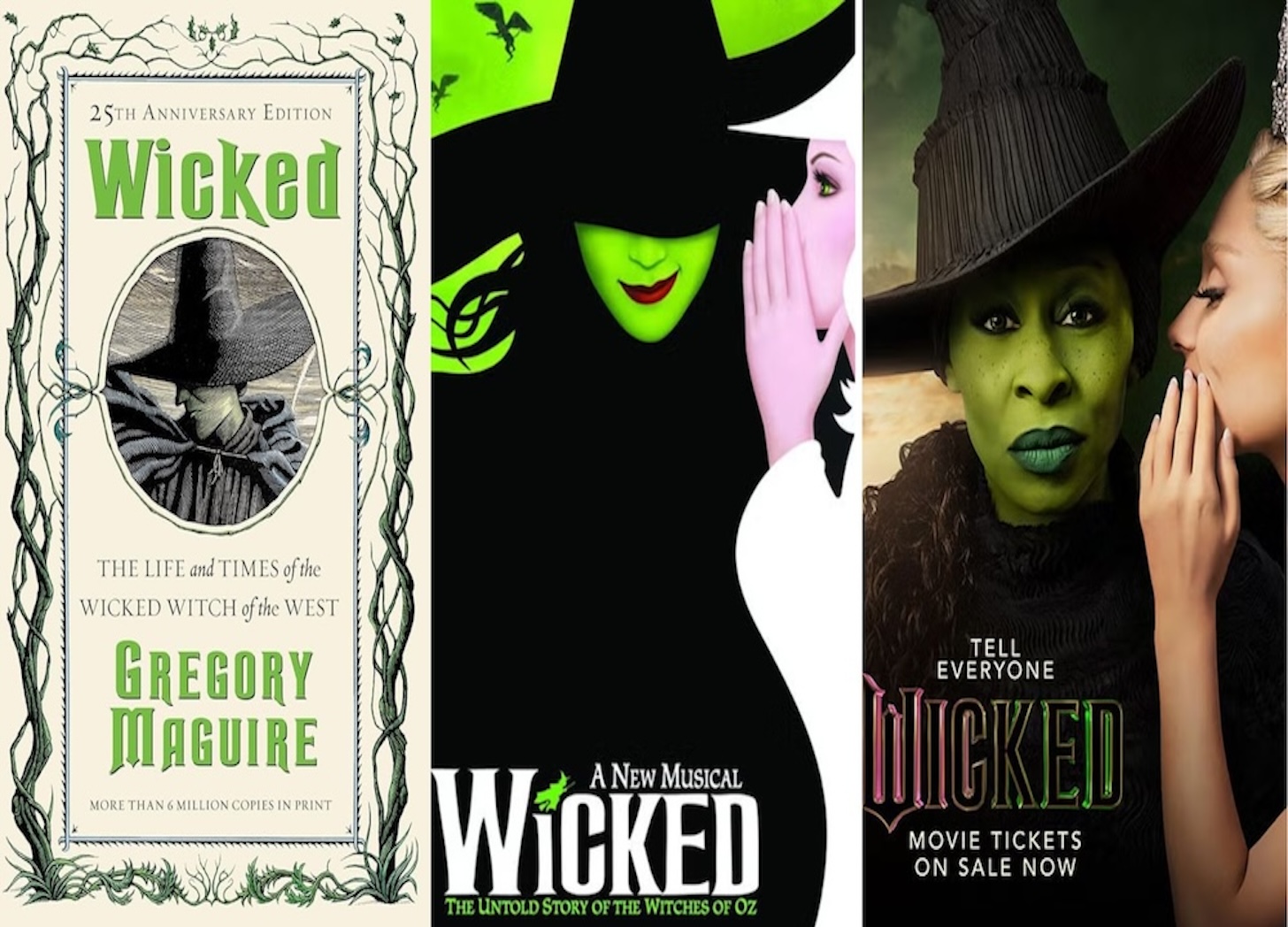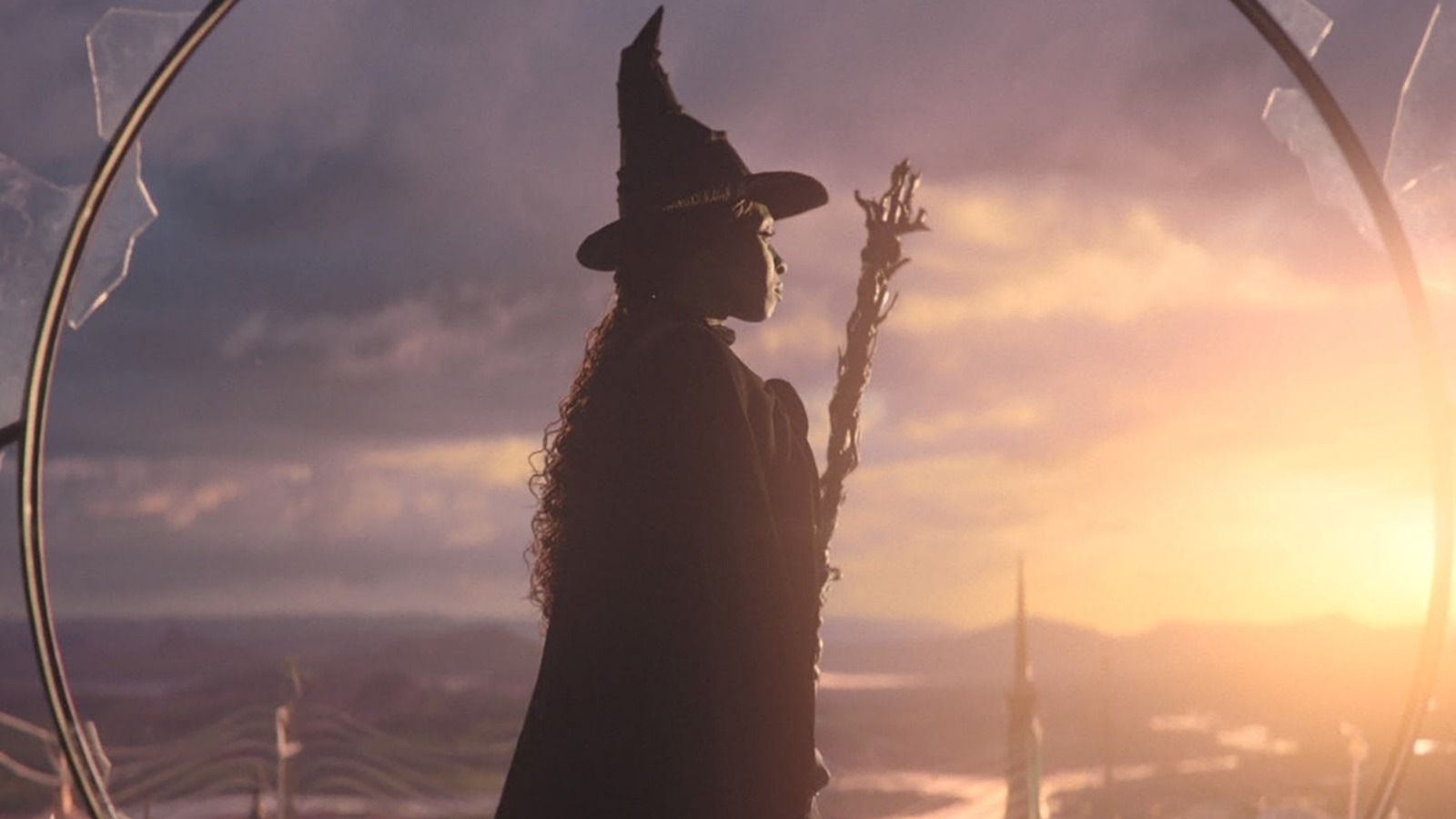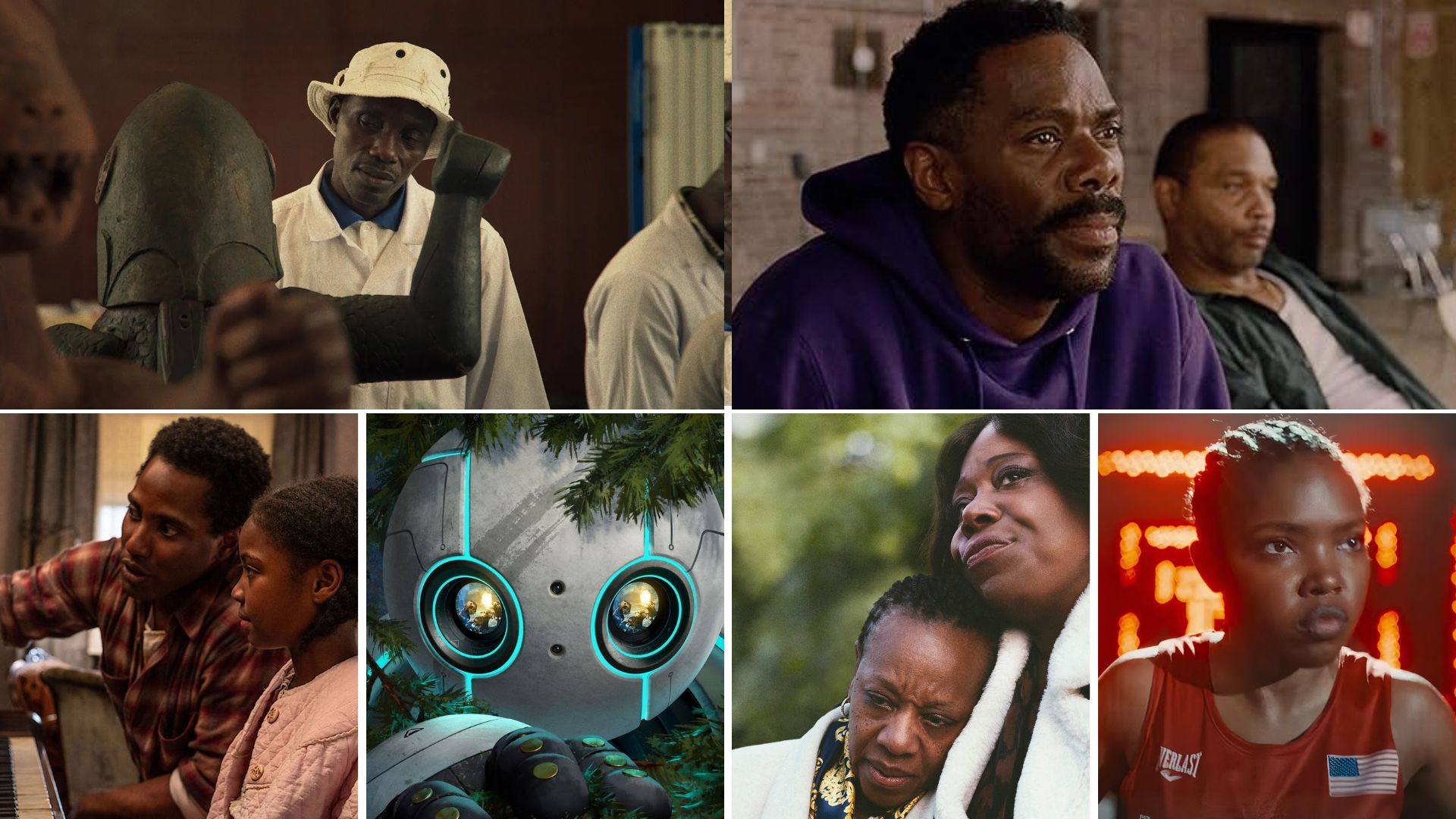*Mild season one and two spoilers below*
After a three-year hiatus due to the Writers Guild and SAG-AFTRA strikes of 2023, the best show on television is finally back for season 2!
For those who haven’t yet gone down the severed rabbit hole, AppleTV+’s Severance is a brilliant, distinctly anti-capitalist mystery-box series that shows how powerful workers are when we unite and how our shared humanity is our greatest weapon against our corporate overlords who want to strip us down to just our working parts.
The show centers on a shady and powerful “wellness” corporation, Lumon Industries, that offers its employees a seemingly ideal form of the so-called “work-life balance.” The severance procedure is for Lumon employees who undergo a painless brain operation wherein a microchip is inserted into their brain that prevents its employees from remembering what they do at work all day. The severed employees go down an elevator shaft to the Severed Floor in the basement of Lumon at around 9 A.M., the chip in their brain activates, and in the blink of an eye, they’re coming back up again around 5 P.M., chip deactivated, and they’re totally unburdened by whatever work they did all day, which Lumon assures them is “mysterious and important.”
Likewise, the employee’s work-self, or the “innies,” have no memory of who they are outside of work. The “innie” self is essentially born at work, with no goals or ambitions other than what Lumon gives them every quarter and no relationships other than those they form with the other innies that they see every day between the hours of 9-5. Contact with their “outies” is strictly forbidden, ensuring that “work-life balance” is maintained on both ends. They aren’t even allowed to mingle with other departments, which are kept so far away from each other that they rarely know who’s even on the Floor. The innies don’t even know what work they’re doing, even as they’re doing it.
Our windows into the innie world are Mark S., Helly R., Irving B. and Dylan G., who make up the Macro Data Refinement team. The “data” that they refine are sets of numbers that show up on a 1980s-era computer screen that make them feel one of four emotions: Woe, Malice, Frolic, or Dread. They group the numbers by emotions and move them with a joystick into different bins on the computer. (My theory is that the MDR team is refining people’s personalities from brains Lumon has probably nefariously acquired and then storing those personalities on the same kind of microchips each of the severed folks have in their brains. I think once MDR teams finish refining these personalties, Lumon will insert those personality chips into human beings who are either clinically dead to bring the body back to life, or in people who are threats to Lumon and need to be controlled—but we’ll have to see how this mystery unravels).
This infantalizing and dehumanizing of the innies is obviously ideal for the corporation. Lumon doesn’t have to worry about its employees leaving work early to pick up a sick kid, or taking a phone call on company time, or getting distracted by literally anything that happens outside of the Severed Floor because they know nothing about what happens outside of the Severed Floor. They’re essentially enslaved to the company and also—less comfortably—enslaved to their outies, existing as long as their outies keep going to work. But what do the outies gain from shutting their brains off for 8 hours a day?
Mark Scout (Adam Scott) or outie Mark, is our main protagonist who answers that question. His wife Gemma died in a car accident and he’s wholly unable to cope. He got severed six months after Gemma’s death and when season one begins, Mark has been a severed employee for two years. Even in the pilot episode, we see him crying in his car before going to work, his agony no less than it was more than two years ago when Gemma first was killed. We see in that first episode Mark Scout go down the Severed elevator and his microchip turn on, Mark S. stepping out into the overly sanitized harsh lighting of the Lumon Severed Floor. Mark S. notices a tissue in his pocket (one that his outie was using to wipe his tears and blow his nose just minutes before) and has no idea why that tissue is there. Unburdened by grief or even knowledge of a dead wife, he smiles as he tosses that tissue into the trash.
Mark S.’s best friend at work, Petey, severed because his wife has divorced him and he can’t take the pain and loneliness. Another side character from season one undergoes severance not for work purposes but so she can go through her pregnancy and childbirth without experiencing the discomfort and pain that comes along with it.
We learn in season 2 that Dylan G.’s outie severed because he wasn’t good at keeping jobs long-term and he had a wife and three children to support. Lumon pays well for access to your unvarnished brain. Through our main cast we see that Lumon essentially preys on desperate people to fulfill its corporate needs.
And did I mention there is a religious cult at the center of it all? Lumon Industries was established right after the Civil War by a man named Kier Egan and he’s basically forced onto the employees as their god. He has 9 principles that everyone must adhere to; there are songs to sing to exalt him and remind workers of their holy mission. They’re told by their season one floor manager Ms. Cobel (a delicious Patricia Arquette), that they only exist to “serve Kier.” And there is strict punishment (i.e. torture) for any violations or misconduct.
Anyone who’s worked at a non-profit has probably heard some Lumon-esque musings about “the mission” that would require its workers to stick it out with the “team,” through abuse, poor pay, or any other forms of toxicity because of the importance of “the work.” Likewise, at huge corporations, if pay is significantly higher, it’s also used as an excuse to accept a toxic work environment, complete work that harms people (and your own soul) and acquiesce to the whims and “brilliance” of a wealthy, narcissistic, Kier-like founder (i.e., “That’s what the money is for!”).
There’s no point in wondering if people would undergo the severance procedure if given the chance in real life, even knowing the moral and ethical consequences we see from the show. We self-sever all the time. This universality is what makes Severance so terrifyingly apt: we’ve all shut off a part of ourselves at one point or another to get or maintain a check. It’s a coping method we’ve learned to survive the inherent trauma of capitalism.
Corporations will lie to employees and tell them to bring their “full selves” to work, but seriously, no one really wants that. And Black people and other marginalized people know better than to believe them. Being Black at work—being a Black woman at work—is a liability if you want to keep that job long enough to get another one. So we wear the mask that grins and lies, as Paul Laurence Dunbar said. And we live to work another day.
This is the trap of Lumon and the metaphor for capitalism: enslave yourself to a corporation in exchange for food and housing (fingers crossed), healthcare (if you’re lucky), vacations (if you’re privileged), and retirement (if you’re a Boomer or an old Gen Xer—the rest of us are screwed). They tell us that socialism—where the workers own the means of production and share in the profits of their labor—is the devil; capitalism, on the other hand—which allows for a small group of people to own the means of production and the rest of us to sell our labor to them, in exchange for goods and services—is the way of freedom.
Capitalists mean for us workers to be emotionally deregulated and mentally disassociated—out of our bodies and minds so we can be more easily controlled. The more severed we are, the more pliable we are. Capitalism needs us to be addicted to comfort and convenience. How could we organize a general strike and grind this fascist country to a halt if it would cause us slight discomfort and inconvenience?
Capitalism needs us to accept mass death as the cost of doing business. Why would we wear masks in an ongoing airborne pandemic to protect ourselves, our children, and the most vulnerable in society from a deadly and disabling disease if wearing a mask would be slightly uncomfortable and mildly inconvenient? First, they said it would only kill our grandparents and the disabled and everyone else seemed okay with that. Then we found out that the most marginalized communities would have the worst health outcomes of either Long Covid or death: trans people, Black people, Indigenous Americans. And folks were really okay with that. We saw more evidence of the corporatizing of the U.S. government back in 2021 when Delta Airlines CEO successfully lobbied Biden’s CDC to change Covid isolation periods from a mandatory 10 days down to 5 days, not for scientific or health reasons, but so airline flight attendants could get back to work faster.
We could’ve gotten back to work safely—and preserved the lives of the human work force—if that was a priority, as it should be in a government. In the past five years of this global pandemic, our government could have had HEPA air filtration installed in every public building, in every airport, on every plane when it’s not in the air; the government could’ve offered incentives for privately owned buildings to upgrade their air filtration systems so that our babies in school can stop getting sick every other week; so we could stop getting sick at our jobs, at the grocery store…so we could eat the brown bread at the Cheesecake Factory without contracting a deadly disease. We could’ve gotten “back to normal” by using science and facts and data to help us make informed choices on how to get out of this pandemic whole.
Instead, our capitalist overlords sold us “normalcy” based on nothing but corporate greed and eugenics. And how many complied without a fight? Relieved from the duty of performing goodness and care for self and others by wearing a mask, too many of us eagerly severed the logical part of the brain for the comfort of “back to normal.” Yes, many people will continue to die or be disabled from a totally avoidable disease, but as long as they do it quietly, somewhere off-camera, in the background, where we don’t have to see—
That is the cost of “normal” under capitalism.
Once you can accept mass death in a pandemic, what’s a little foreign genocide? How many peace-loving, tree-hugging liberals turned off their brains to the livestreamed horrors of Palestinian children blown apart by the IOF with American-made bombs for the past sixteen months? Murder of journalists. Abuse of pregnant women. Destruction of the ecosystems. Massive acceleration of climate change. Sexual abuse and torture of Palestinian men and children. Forced starvation. Destruction of hospitals, universities, libraries, culture centers. The genocide of the Palestinians consists of every single issue liberals claim to care about when republicans commit the crimes. Yet being silent while democrats committed genocide and war crimes was the cost of electing the not fascist presidential candidate, we were told. A successful conditioning.
Once we are conditioned to accept mass murder by disease and mass murder by bombing, snipers and forced starvation abroad, what other horrors can we be conditioned to accept at home? Bridges crumbling under our cars? Trains running off the tracks? Plane parts falling out of the sky? Planes crashing in overcrowded, understaffed air space?
Every day of Trump’s second presidency has been chaos and threats of chaos; lawlessness and threats of lawlessness; wars and rumors of wars. By Trump’s executive order and a fascist police state’s eager compliance, human beings are being racially profiled and illegally deported by the thousands. (It’s still only half of the number Biden deported per week, to significantly less outrage.) The ongoing corporatizing of the U.S. government has hastened at an alarming clip as unelected colonizer Elon Musk steals the purse of the U.S. Treasury with the aim of running the government like one of his barely functioning, racist, sexist, toxic companies. The feckless Democrats have decided to do nothing more but yell “Heeeey! They can’t do that!” on social media instead of doing literally anything to stop them IRL because they’re all controlled by the same billionaires and there’s really only one party in America: the fascist elite.
It’s all intentionally overwhelming, and at minimum uncomfortable and inconvenient. And what has capitalism trained us to do when we are faced with discomfort and inconvenience? Shut down. Turn off. Disassociate. Sever. Run back to comfort and convenience—even if it’s false; even if it’s a blatant lie.
“I’m not Mexican,” folks tell themselves as the fascists round up Caribbean and African immigrants and anyone with a tan for deportation. “I’m not trans,” folks tell themselves as the government seeks to strictly define gender in order to roll back all gender-based rights. “I’m not Black” folks tell themselves as the civil rights that Black folks won but everyone else benefitted from get steamrolled away.
Fascists need a compliant army to enforce their fascism. And lucky for them, we’ve all been pre-disposed to comply. Somebody has to open the door and let Elon Musk and his cronies in to illegally take over the government. Somebody has to hand over the passwords. Somebody has to push the buttons. Somebody has to harass, racially profile and detain immigrants. Somebody has to fly the deportation planes. Somebody has to operate the ships that send the bombs to Israel to blow up children in Gaza and the West Bank. Somebody has to assemble the bombs. How much of our humanity will we continue to sever in the name of “just doing my job”; “I have a family to take care of”; “I need healthcare”; or “I just can’t cope”?
In season one of Severance, Petey’s daughter asks outie Mark: “Did you ever think that the way to deal with a fucked up situation in your life is not to shut your brain off half the time?”
Mark doesn’t answer. It hadn’t occurred to him. His pain was too great. He described the grief as “choking on [his wife’s] ghost.” Lumon offered him a tainted release.
Our pain in this chaos—of planes crashing midair, of loved ones being rounded up, of several genocides in Sudan, Congo, and Palestine with America’s name on it—is beyond uncomfortable at this point: it’s agonizing. It’s understandable to want an end to the pain. As tempting as it is to accept the tainted release of shutting off our brains and logging out of this chaos, we cannot afford to sever. We must stay in our humanity and feel this pain so we can fight back against who and what is causing it. This is the only way we heal: to know the truth and to fight for it. Contrary to the popular mantra, “resting” is not resistance, if that’s the only form of opposition you’re taking. We can’t fight fascism if we’re not even awake.
In season one, Lumon thought that a workforce with no outside memories, relationships, or goals and only the brainwashing of the corporate cult would render the innies not human. Without humanity—which instills in each living being the instinct to resist oppression and survive—Lumon thought the innies would be easy to control. But despite their dehumanizing work conditions, the innies’ humanity bled through and literally overrode their programming. They formed relationships with each other and with innies in other departments. They banded together in an anti-capitalist uprising that began the process of dismantling Lumon’s fascist oppression.
In the season two premiere, as fascist systems do, Lumon figured out a way to co-opt the innies’ uprising. Just like the corporatization of the Black Lives Matter movement that elevated a few individual Black “leaders” at the expense of Black liberation; the sanitizing of the radical Dr. Martin Luther King by the government that killed him; and Obama ending the 2020 NBA strike by convincing Lebron it’d be more powerful of a protest if the NBA players…didn’t protest at all and kept playing: Lumon knows how to squash a movement. Like every corporation that a posted a black square on Instagram in the wake of the George Floyd uprisings, Lumon put together a stop-motion animated video using the slogan “Lumon is Listening,” as their nefarious promise to reform themselves, when what they really were admitting to is continued surveillance. And by the end of the season two premiere, our freedom-fighting innies get back in line—not because they believe Lumon is being truthful, but because they have too much to lose by leaving. They’re back in the trap, but a thousand times wiser to their own power, with an agenda that will hopefully bring the company to its knees.
With only three episodes airing as of yet, it’s still too early to tell how the season will play out. Fortunately, since Black people IRL have been fighting fascism in this country for centuries, we don’t have to look to Severance or The Handmaids Tale to know what we must do next. Our ancestors left us plenty of guides. But if any among us are sleep, there’s nothing wrong with art being the catalyst for waking up. The purpose of art is to wake us up! And Severance is showing us it’s time to reintegrate the parts of our brain we’ve pushed aside to cope. Whatever excuses we had for severing in the first place, it’s time to release them all, if we mean to survive what’s coming and what’s long been here.
Be inconvenienced in the name of love—for self and community. Make a plan for where to spend your money that aligns with your values—even if that means driving a little farther or spending a little more or never getting the convenience of two-day shipping again. Principled living requires a sustainable plan. Get comfortable being uncomfortable as the only person wearing a mask in a room. Let the N95 be the symbol of resisting the fascism that says mass death is acceptable. Donate to mutual aid groups and form mutual aid groups in your community so everyone feels a bit more comfortable and supported while speaking up against injustice. Refuse to comply in advance; refuse to do the jobs that you know are harming others.
It’s time to tap back into our humanity and never let capitalism sever us from it again.
Stay watchin’,
Brooke
